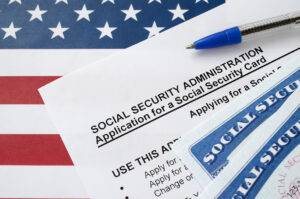
Article At A Glance:
- Due to the pandemic, last-minute delays were applied to the effective dates for the Accounting Standards 2014-09 Revenue from Contracts with Customers
- New updates change the classification of liability or equity financial instruments that include down round features.
- Topic 718 was expanded for stock compensation to include share-based payments for nonemployees’ goods and services.
- Updates were made to the Collections definition to align with the industry definition.
- Effective dates for 2016-02 Leases have been delayed to fiscal years beginning after December 15, 2021.
Greetings and Happy New Year! As we all look with anticipation to 2021 the last thing on anyone’s mind are the effective dates for new accounting standards. For your convenience, I have compiled a list of the most pervasive updates that will apply to calendar 2020 financial statements for the first time.
I hope to see you all sometime this year and Best Wishes for an outstanding 2021!
Jeff
2014-09- Revenue from Contracts with Customers
This was to be effective for private companies for 2019, however there was a last-minute delay of the effective date in May due to the pandemic. This delay would apply unless the provisions had already been applied to 2019 statements.
While this has certainly been a highly discussed standard, the true impact will be minimal for most entities. The standard requires a five-step recognition framework for the recognition of revenue. Current practices of most entities will probably fit within that framework. Those specialized industry entities that previously had rules for revenue recognition will need to look at the framework carefully for compliance.
All entities should document that they considered the framework and that their practices conform.
2017-08- Receivables- Nonrefundable Fees and Other Costs
This update affects the amortization period for certain purchased called debt securities that are held at a premium. Current GAAP excludes certain callable debt securities from early repayment consideration even in the case of certain early call. An early call would result in a loss in earnings as the result of the call.
To avoid this situation, this update now requires the premium to be amortized over the period up to the earliest call date.
2017-11- Earnings Per Share- Distinguishing Liabilities from Equity
The FASB has found that there is increased complexity with regard to certain financial instruments with characteristics of liabilities and equity. This update changes the classification of liability or equity financial instruments (or embedded features) that include down round features. These could include warrants or convertible instruments.
2018-07- Stock Compensation- Nonemployee Share-Based Payments
This update expands the scope of Topic 718 for stock compensation to now include share-based payments for goods and services from nonemployees. This is part of the FASB’s Simplification Initiative.
2018-13 Fair Value Measurement Disclosures
This update was issued as a result of the Disclosure Framework found in the FASB Conceptual Framework. The goal of the framework was to ensure that disclosures were relevant and that all relevant information is provided. As a result, the FASB used the disclosures for FVM as a test group for applying the framework. Practitioners will need to take care to update their disclosures as necessary.
2019-08- Compensation- Stock Compensation- Share-Based Consideration Payable to a Customer
This update requires that an entity apply the share-based award general guidance found in Topic 718 to awards granted to customers. This removes previous specific guidance and is part of the FASB’s Simplification Initiative.
2019-03- NFP- Updating the Definition of Collections
Prior GAAP required that if an item was removed from an NFP collection, then any funds received from the removal and disposition would have to be used to acquire another collectible. This update allows that the funds be used for “direct care” of the collection as well. Along with this comes various new disclosures.
This update also changes the definition of “collections” to bring it in line with the industry definition.
2020-04- Reference Rate Reform
Several regulators around the world have raised concerns about current risks related to “interbank offered rates (IBORs). Thus, a major reform to these rates has begun. Because this will affect any entity having contracts or hedging relationships that reference those rates, there will be issues due to their discontinuance.
This update provides optional expedients, exceptions, and guidance for handling this.
2016-02- Leases
While this update is NOT effective for 2020, it was going to be effective for 2021 and that was causing an undue amount of stress on the preparers of private company financial statement. For this reason, the FASB delayed the effective date to fiscal years beginning after December 15, 2021. This would make it effective for calendar 2022. So, now is the time to get it under control!
For more information on these topics, please go to www.fasb.org.
DON’T FORGET TO WATCH OUR NEW FAQs VIDEO
Sharon Kreider’s FAQ Video: Second Stimulus Update
Recent Stories
Next Up...
- |
- TaxByte
- |
- TaxByte





